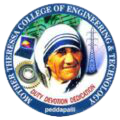Teaching- Learning Process
The Institute follows integrated teaching and various student centric methods for an effective implementation of the teaching learning process.
Experiential Learning
The institution offers experiential learning for students with the following approaches:
Laboratory Sessions: Laboratory sessions are accompanied for healthier appreciative of theoretical concepts.
Internships: Through MOUs with the National/Multi-National premier institutions and industries, the institute facilitates student internships and industry related projects.
Industrial study visits & Field visits: Industry study visits are organized to convey practical exposures to present technologies and to provide a prospect to absorb practically through interaction.
E-Learning: The institute provides NDL logins to accesses books, course materials, project reports, magazines, printed & e-journals etc.
Participative Learning
The Institute concentrates on students for energetic involvement by autonomously and interdependently by cooperative learning approaches
Seminars/Workshops: Students are made competent on consistent basis in modern tendencies and groundbreaking technologies by establishing workshops and seminars by inviting experts from industry.
Group Assignments/ Mock Interviews: Group discussions are piloted from second year onwards for soft skills developments. Mock interviews are conducted before the campus placements, to expand self-confidence levels in the student.
Technical Presentation: The students are reinvigorated to take part in technical events to show case their performance skill through poster, paper and model presentations.
Think pair-share: Implemented in classrooms to help students to form individual ideas, discussions and share with in other groups.
Problem Solving Learning
Problem Solving Methodologies are procedures through which a condition or issue may be examined, and proper solutions are employed.
Hands-on training programs: In every semester, the students will undergo the training activities to explore on industry and advanced technologies.
Project Based learning: Students get an opportunity to design and develop projects by information gathering, investigating, analyzing and demonstrating on real time challenges.
Developing innovative models: Students takes some real-world problems for rising new products/models with newness in perception of meeting challenges in industry and academia.
Small group-based assignments: Group of students are assigned with some case study problems, present skills and industry need based problems to address and develop possible solutions.
The Institute also follows ICT enabled teaching and learning practises in addition to the traditional classroom teaching and learning.
Blended Teaching: Usage of Teaching aid Techniques such as Video Lectures, Power point presentations. Implementation of Active learning strategies such as Collaborative and individual learning activities.
Online Teaching: Faculty made a swift transition from classroom to online teaching by using platforms like Google meet, Google class room, ZOOM, CISCO WEB-EX and You-Tube.
Course Handouts: Course handout consists of Video lectures, Lecture Notes, Assignment questions, Tutorial questions and answers a model question papers sharing using ICT tools like Google Classroom etc.
Massive Open online course: Students enroll for various courses through NPTEL, COURSERA, and other MOOCs for better understanding of the subject and get certified.
Social Media in Education: Faculty members also use the social media platforms like WhatsApp, Instagram, Facebook, Telegram etc. to attach with students for sharing information.
Google Forms: The faculty of uses Google forms for assessing the students for quiz, assignments etc.,
